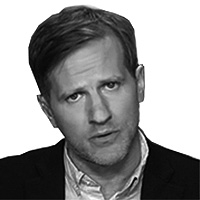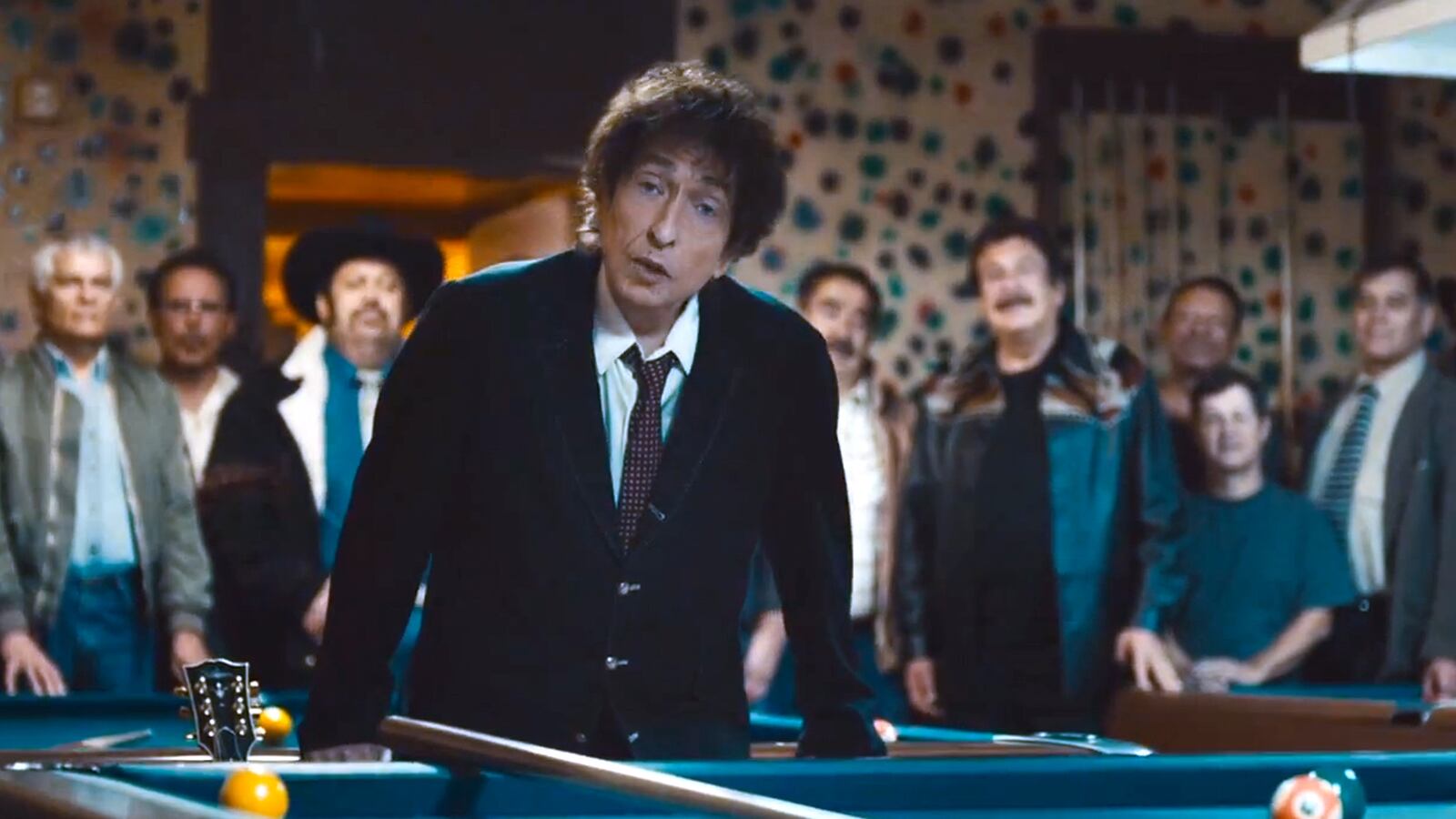According to everyone on the internet, the 1960s ended with a whimper on Sunday, when Bob Dylan rasped and gasped through a Chrysler commercial, barely an hour after his song “I Want You” played in the background of a Greek yogurt ad. Cue the inevitable and stupendously dumb Twitter storm, during which musicians, journalists, and assorted know-nothings insisted that Robert Zimmerman--who famously wasn’t so keen on racism and nuclear weapons--had sullied his legacy by plumping for a car company. There were scattered defenses of his “selling out” (but no one doubted that it was a sellout). Young Ronan Farrow, bless his soul, declared that Dylan had “earned the right to sell out.” The rest of Twitter, it seemed, disagreed.

If you’ve made records like Blonde on Blonde and The Freewheelin’ Bob Dylan, vindicated Rueben “Hurricane” Carter and convicted William Zanzinger, and are unwittingly anointed the “voice of a generation,” you’ve attained a level of sanctity and moral purity that demands resistance to crass commercialism. One cannot go from Hattie Carroll “emptying the ashtrays on a whole other level” to advising football fans to hand over $30,000 for an SUV.
If you’ve paid any attention to Dylan’s career, you’re familiar with the perennial “from America’s conscience to shameless sell out” charge, from the almost immediate abandonment of “issue” songs (in 1964, Irwin Silber wrote Dylan an open letter expressing horror at this “different Bob Dylan from the one we knew”), to his infamous 1965 “electric” set at the Newport Folk Festival, and the even-more-infamous 1966 “judas” heckle at Manchester’s Free Trade Hall.
The “sell out” literature on Dylan is voluminous and always wrong--there are, after all, many songs licensed, many pre-Chrysler television commercials--but a few recent examples of the phenomenon will suffice: In 2011, New York Times columnist Maureen Dowd crowed that “Bob Dylan may have done the impossible: broken creative new ground in selling out” for playing in China. In 2004, Slate wrote that his appearance in a Victoria’s Secret commercial was a “sellout [that] feels different, in part because Dylan actually appears in the commercial.” In 2007, The Guardian asked if his “ad for the gas-guzzling Cadillac Escalade make him the biggest sellout the world has ever seen” (the answer was, of course, yes). The writer, who seems to have missed every development in Dylan’s career after 1964, offers a stern warning to his readers: “Enjoy Dylan's music. Enjoy his radio show. But don't look to the man for any sort of spiritual or moral guidance. With these ads, he has lost any integrity he had left.” And chosen entirely at random, a self-proclaimed “Dylanophile” at the Washington Post kvetched after last night’s Super Bowl commercial that it was “a somewhat disturbing sight to see” his hero shilling for some fanged Italian corporation.
Indeed, it’s not clear that any of Dylan’s critics possess even a passing familiarity with his career--it’s all ”Blowin’ in the Wind” and”Masters of War,” the standard “voice of his generation” platitudes he’s been trying to outrun since Another Side of Bob Dylan (as he told critic Nat Hentoff in 1964, “there aren't any finger-pointin' songs” on the record), and memories frozen in the Woody Guthrie manqué period. Alan Lomax and Pete Seeger, the editors of Sing Out! magazine, the tedious and dour folkies at Newport, all needed Dylan to be something. And only when you misunderstand Dylan can you accuse him of betraying ideals he never really had--or hasn’t had in a half century.
It’s always worth mentioning that Dylan has himself long been desperate to disassociate from the “voice of a generation” narrative, arguing in his memoir Chronicles:Volume One, “I had very little in common with and knew even less about a generation that I was supposed to be the voice of.” And my friend Nick Gillespie beat me to the punch in pointing out that the boy from Minnesota obsessed with Charlie Patton and Blind Willie McTell had heterodox political views: “I had a primitive way of looking at things and I liked country fair politics. My favorite politician was Arizona Senator Barry Goldwater, who reminded me of Tom Mix, and there wasn't any way to explain that to anybody.”
Or as he said to 60 Minutes’ Ed Bradley in 2004, fame “was like being in an Edgar Allan Poe story. And you're just not that person everybody thinks you are, though they call you that all the time. 'You're the prophet. You're the savior.' I never wanted to be a prophet or savior. Elvis maybe. I could easily see myself becoming him.”
Dylan wasn’t, as some have suggested, making a statement on Sunday, setting fire to his past, or engaging in some nod-and-wink post-modern experiment. He was simply making a living. Just like Elvis would have done.






